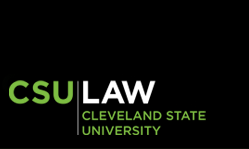Volume
70
Abstract
The relationship between municipal responsibility and municipal liability in civil suits concerning local police officer misconduct is flawed. Cities have almost unlimited control over their police departments but lack almost any control over the civil litigation of their officers, aside from city attorneys representing them. In police misconduct cases, city attorneys representing police officers are required to invoke any available affirmative defenses, either common law or statutory, regardless of the moral convictions of the city attorneys, city legislators, or local citizens. To bridge the logical gap between municipal responsibility and the lack of municipal control over police misconduct litigation, this Note argues that the Ohio Revised Code should be amended to allow municipalities full control over the civil litigation of their police officers, including which affirmative defenses the city attorneys must invoke. This solution would allow municipalities the choice of whether to invoke defenses like qualified immunity or the statutory defenses in the Ohio Revised Code, returning the power over civil litigation to the entity that bears financial responsibility if the police officer or municipality is held liable.
Recommended Citation
Nicholas McGill Hudnell,
Disqualifying Qualified Immunity,
70 Clev. St. L. Rev. Et Cetera
1
(2021)
available at https://engagedscholarship.csuohio.edu/etcetera/vol70/iss1/1
